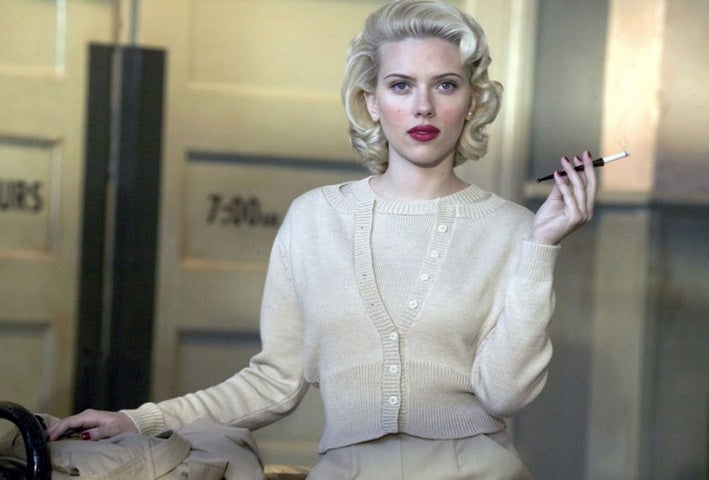Tobacco firms target teenage girls with 'super slim' products cigarettes
Charities accuse companies of exploiting young women's fears about weight

Your support helps us to tell the story
From reproductive rights to climate change to Big Tech, The Independent is on the ground when the story is developing. Whether it's investigating the financials of Elon Musk's pro-Trump PAC or producing our latest documentary, 'The A Word', which shines a light on the American women fighting for reproductive rights, we know how important it is to parse out the facts from the messaging.
At such a critical moment in US history, we need reporters on the ground. Your donation allows us to keep sending journalists to speak to both sides of the story.
The Independent is trusted by Americans across the entire political spectrum. And unlike many other quality news outlets, we choose not to lock Americans out of our reporting and analysis with paywalls. We believe quality journalism should be available to everyone, paid for by those who can afford it.
Your support makes all the difference.Tobacco companies are increasingly targeting teenage girls, using cynical marketing ploys that tap into young women's fears about their weight, and introducing "female-friendly" packaging, campaign groups warned yesterday.
Silk Cut will next month launch a range of "Superslims", which will be sold in "perfume-shaped" boxes designed to appeal to image-conscious women.
"Silk Cut is using the terminology 'super slim' to make the link between smoking their product and losing weight," said Deborah Arnott, director of the Action on Smoking and Health (ASH). "Like a dog whistle that is inaudible to humans, this message is only heard by those it's aimed at: in this case girls anxious about their weight and desperate to stay slim. It's despicable for the industry to target vulnerable young women in this way."
The charity Cancer Research UK estimates that smoking is responsible for 46,000 deaths a year in the UK.
Silk Cut's new marketing ploy is just the latest device that tobacco companies are using to appeal to women. Research published in the US journal Tobacco Control last month revealed that stars of Hollywood's golden age also promoted smoking, with Clark Gable and Bette Davis paid the equivalent of £35,000 a year by tobacco companies. "These companies are trying to glamorise smoking, just as they try to get celebrities to be associated with their brand to boost sales," Ms Arnott said.
The actress Scarlett Johansson was accused of promoting smoking with her role in the 2006 film The Black Dahlia, in which she was seen sporting an old-fashioned black cigarette holder.
Many tobacco companies have tried to forge a link between smoking and slimness. The first ad which emphasised the "benefits" of smoking for weight control was brought out in the late 1920s, with the slogan "Reach for a Lucky instead of a sweet".
The popular US brand Virginia Slims hammers the message home with varieties Virginia Slims Super Slims Lights and Virginia Slims Super Slims Ultra Lights. In early 2009 the company will also launch sleek pink "Purse Packs" aimed at women.
Some believe that tobacco companies are using distinctive packaging to get around the restrictions put in place by the 2002 Tobacco Advertising and Promotion Act, which banned all cigarette advertising except alongside Formula One racing. "Wrapping cigarettes in attractive packaging is one of the last marketing tools left for tobacco companies," said Elspeth Lee, head of tobacco control at Cancer Research UK.
Gallaher Group, the company that produces Silk Cut, was unavailable for comment yesterday.
Marketing ploys
In search of celebrities with selling power
Film
From Audrey Hepburn's chic cigarette holder in 'Breakfast at Tiffany's', to Scarlett Johansson's sultry smoking in 'The Black Dahlia', the message from Hollywood is clear – smoking is cool.
Fashion
It is well known that models smoke backstage, but designer Jean Paul Gaultier went one better in May, sending models down the catwalk in Paris with lit cigarettes.
Celebrity
Since advertising cigarettes was banned, tobacco companies have adopted sneakier tactics. Companies such as Lucky Strike pay the London bars that celebrities hang out in to promote their products, so that the stars will then be snapped with them.
Join our commenting forum
Join thought-provoking conversations, follow other Independent readers and see their replies
Comments